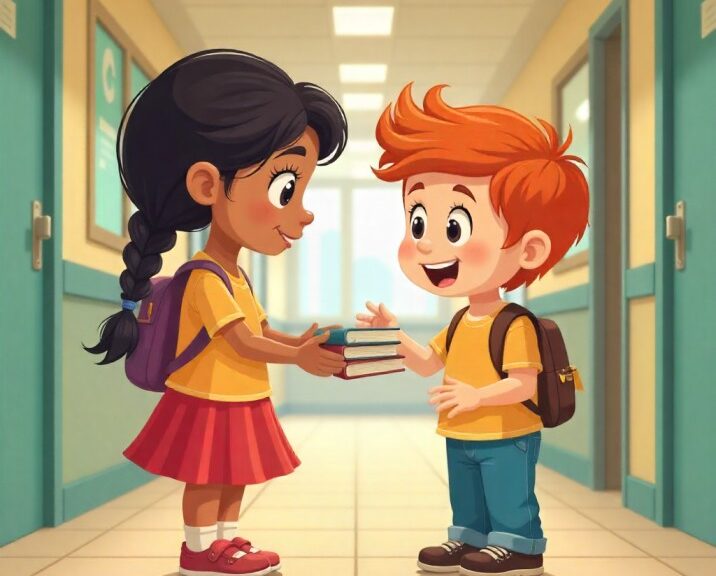
Good Manners Every Child Should Know
Teaching your kids good manners at a young age can be challenging, but it can make a big difference in their future. Good manners help children build strong relationships with their friends, teachers, and family members. This blog will explain why manners are important, share simple tips for parents, and show how learning manners helps children in the long run.
At The Manthan School, Noida, we believe it’s important to teach good manners from a young age. Not only do manners help children get along with others, but they also help build confidence and respect. When children learn to be polite, they feel better about themselves and make a good impression wherever they go.
According to the American Academy of Pediatrics (AAP), kids learn best by watching the adults around them. So as parents, teachers, and caregivers, we need to show good manners ourselves. Children are always watching and learning from what we do.
Why Do Good Manners Matter?
Good manners are more than just saying “please” and “thank you.” They help children:
● Make friends more easily
● Show kindness and respect
● Feel more confident in social situations
● Understand how to behave in different places
● Grow into responsible and caring adults
“In fact, a study following kindergarteners into adulthood found that children who showed better social skills like sharing and cooperating were more likely to earn a college degree, finish high school, and have stable jobs by age 25 .
10 Good Manners Every Child Should Know
Here are 10 simple manners you can start teaching your child today ideally before they turn 9 years old.
1. Say Hello and Greet People
Teach your child to say “Hi” or “Hello” when they meet someone. A smile and a friendly greeting go a long way. It makes them appear kind, confident, and approachable.
2. Be On Time
Being late can create problems for other people. Teach your child to be punctual for school and other activities so they learn to respect others. Also, it will help them master time management.
3. Respect Elders
Children should learn to talk politely with their parents, grandparents, teachers, and other adults. Listening carefully and not interrupting is a big part of showing respect.
4. Be Honest
Being honest is a very important habit. Explain to your children the damage lying can do to trust. No matter how hard it is, it is always better to tell the truth.
5. Ask for Permission
Every time your child picks up someone else’s toy, uses a phone, or wants to go outside, they need to ask first. It shows respect for what is not theirs and respect for others’ belongings and their decisions.
6. Use Magic Words
Simple words like “please”, “thank you”, “sorry”, and “excuse me” are called magic words for a reason. They demonstrate kindness and gratitude and allow children to express themselves politely.
7. Wait Your Turn
Children become so excited that they often want to talk or act right away. Teach children to wait their turn when speaking to others, standing in line, or playing a game. Learning to be patient is a valuable skill.
8. Say “Excuse Me”
There will be times when your child needs to interrupt, like in an emergency. In these situations, they should say “Excuse me” first. It’s a polite way to get someone’s attention.
9. Don’t Disrespect Anyone
Do take note that Children may sometimes say things impulsively. They may bluntly describe someone’s clothing, body shape, or skin. Help them understand that it’s not polite to talk about how people look. Teach them to be kind and accepting of everyone.
10. Practice Gratitude
Teach your child the value of being grateful. Whether someone gives them a gift, whether they helped with homework, or even just sharing a snack. Saying “thank you” is an awesome habit to develop.
What Can Parents Do?
You don’t have to sit your child down for long lessons. Instead, teach manners in everyday situations:
● Remind them gently when they forget
● Praise them when they remember
● Be patient and consistent
● Most importantly, set a good example yourself
Your actions speak louder than your words. If your child sees you being polite, respectful, and kind, they’ll follow your lead.
Conclusion
At The Manthan School, cbse school in sector 78 noida, we believe that manners are as important as reading and writing. When we teach children to be courteous and respectful, we are arming them with skills that will benefit them for the rest of their life.
Let’s work together as parents, teachers, and the entire school community to help our children develop into kind, confident, and respectful young people. After all, good manners will open doors but great manners will open hearts.